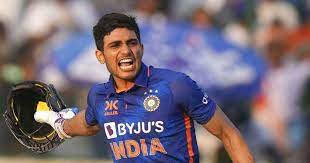In 2011, India won the cricket World Cup with batter Sachin Tendulkar playing his final tournament. Tendulkar, then 39, was on his sixth attempt, and the team’s unofficial slogan became “Let’s do it for Sachin.” After the victory, captain Mahendra Singh Dhoni’s winning six sparked a memorable moment. Virat Kohli, who helped carry Tendulkar on their shoulders, said, “He has carried our batting on his shoulders for so long, it is time we carried him on our shoulders.”
Now, Kohli, considered Tendulkar’s natural successor and turning 36 this year, is nearing the end of his career. The next T20 World Cup is scheduled for 2026, and the 50-over version for 2027. Although Kohli remains fitter than Tendulkar at a similar age, it is uncertain if he will continue to play white-ball cricket at the highest level. Captain Rohit Sharma, at 37, might also be participating in his last World Cup.
Unlike in 2011, there has been no overt “Let’s do it for Kohli” or “Let’s do it for Rohit” sentiment within the Indian team. However, there might be a subdued “Let’s do it for [Rahul] Dravid” feeling. This World Cup represents Dravid’s final assignment as the national team coach, having missed the 2011 World Cup.
T20 cricket is increasingly becoming a young man’s game, where personal statistics are less significant compared to the focus on aggressive, high-impact play. This shift in Indian cricket culture, prioritizing strike rates over averages, has gone relatively unnoticed. Sharma’s impressive 92 against Australia demonstrated to the younger generation the importance of strike rates in T20 cricket. Tendulkar’s 100th international century, although celebrated, was achieved in a match India lost, highlighting this evolving perspective.
India’s T20 team is currently in a transitional phase, with ten members over 30 and three over 35. Younger, more aggressive players are emerging. Shubhman Gill is set to lead an Indian T20 squad to Zimbabwe for a five-match series next month. The future of Indian cricket is represented by players like Yashasvi Jaiswal, Riyan Parag, Abhishek Sharma, Dhruv Jurel, Nitish Kumar, Ravi Bishnoi, all under 25, and Rinku Singh, slightly older.
In the current squad in the West Indies, players over 35 include Ravindra Jadeja, while Suryakumar Yadav, the top batter in the format, approaches 34. In T20, age should ideally be secondary to form and fitness. However, the format’s rapid pace can make experience a double-edged sword, where past strategies might quickly become outdated.
Kohli and Sharma have successfully adapted to T20’s evolving demands, keeping pace with newer stars like Suryakumar and Jaiswal (ranked No. 7 globally). It is conceivable that one or both might retire after the current World Cup. If India wins, they might choose to exit on a high note. If they lose, there will likely be calls for them to step aside. The nature of sports can be unforgiving.
India’s loss to Australia in last year’s 50-over World Cup final was devastating for the nation. Kohli and Sharma, both having performed well throughout the tournament, were particularly affected, knowing this might have been their last chance. This loss has fueled their quest for redemption in the T20 World Cup. A world title, regardless of format, is often seen as the pinnacle of a career, making a triumph an ideal point for team transition.

